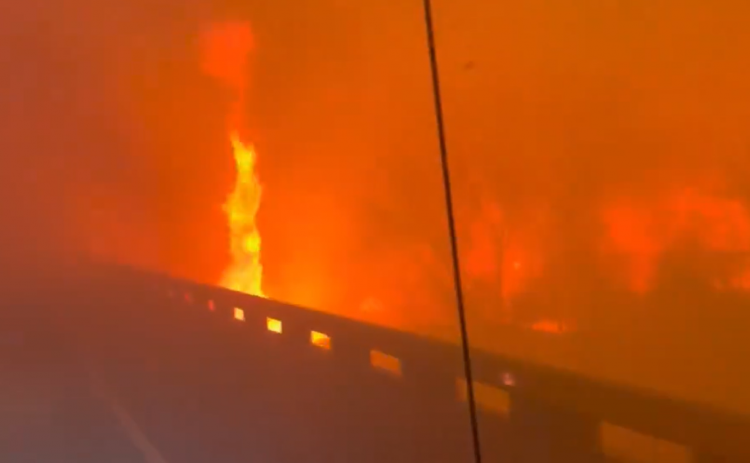Texas firefighters, after a brief respite provided by an unexpected snowfall, are bracing for a resurgence of perilous conditions as they combat the state's largest wildfire on record. The Smokehouse Creek wildfire, which has ravaged over a million acres in the Texas Panhandle in just four days, has already claimed one life and destroyed numerous homes. Despite the temporary relief brought by 1-3 inches of snow, courtesy of a weak low-pressure system, the forecast predicts a return to arid, windy conditions that threaten to exacerbate the firefighting efforts.
As temperatures climb back into the 70s and humidity levels plummet below 20%, the Fire Weather Watches have been reinstated across the Texas and Oklahoma Panhandles, extending into Kansas and eastern Colorado. The weekend forecast is particularly grim, with wind gusts anticipated to reach up to 50 mph, creating a tinderbox situation that could fuel the fires further. The National Weather Service and the FOX Forecast Center have highlighted the critical nature of the impending conditions, underscoring the challenges that lie ahead for the firefighting teams.
The battle against the flames is not isolated to the Smokehouse Creek Fire. The Texas Panhandle is engulfed in a series of major wildfires, with five significant blazes consuming over 1.25 million acres. Among these, the Smokehouse Creek Fire stands out for its sheer magnitude and rapid expansion, now holding the dubious title of the largest wildfire in Texas history. Despite the efforts of ground crews, the fire's containment remains minimal, hampered by rugged terrain and the vast expanse of the blaze.
The human cost of these wildfires is palpable in the town of Fritch, where the Windy Deuce Fire has obliterated approximately half the town. Residents like Lee Quesada return to neighborhoods irrevocably altered by the devastation, with homes reduced to ashes and communities in mourning. The Grape Vine Creek Fire, though 60% contained, adds to the toll, scorching 30,000 acres and displacing families.
The fires have not only wrought havoc on the ground but have also impacted the region's air quality, sending plumes of smoke across the Plains and affecting areas as far north as Minnesota and Wisconsin. The environmental impact was starkly illustrated when flames engulfed a weather station in Canadian, Texas, recording a staggering temperature of 126 degrees before its destruction.
Amidst this chaos, critical infrastructure has also been threatened, notably the Pantex Plant, a nuclear weapons facility near Amarillo. The proximity of the flames prompted a halt in operations and a concerted effort to protect the site, highlighting the broader implications of the wildfires on national security and safety.
As Texas grapples with this historic wildfire, the resilience of its firefighters and the community's solidarity are put to the test. The impending weekend weather poses a significant hurdle, but the collective resolve to overcome this disaster remains undeterred. With additional firefighting resources en route and a vigilant eye on the changing conditions, Texas stands united in its battle against the flames.




